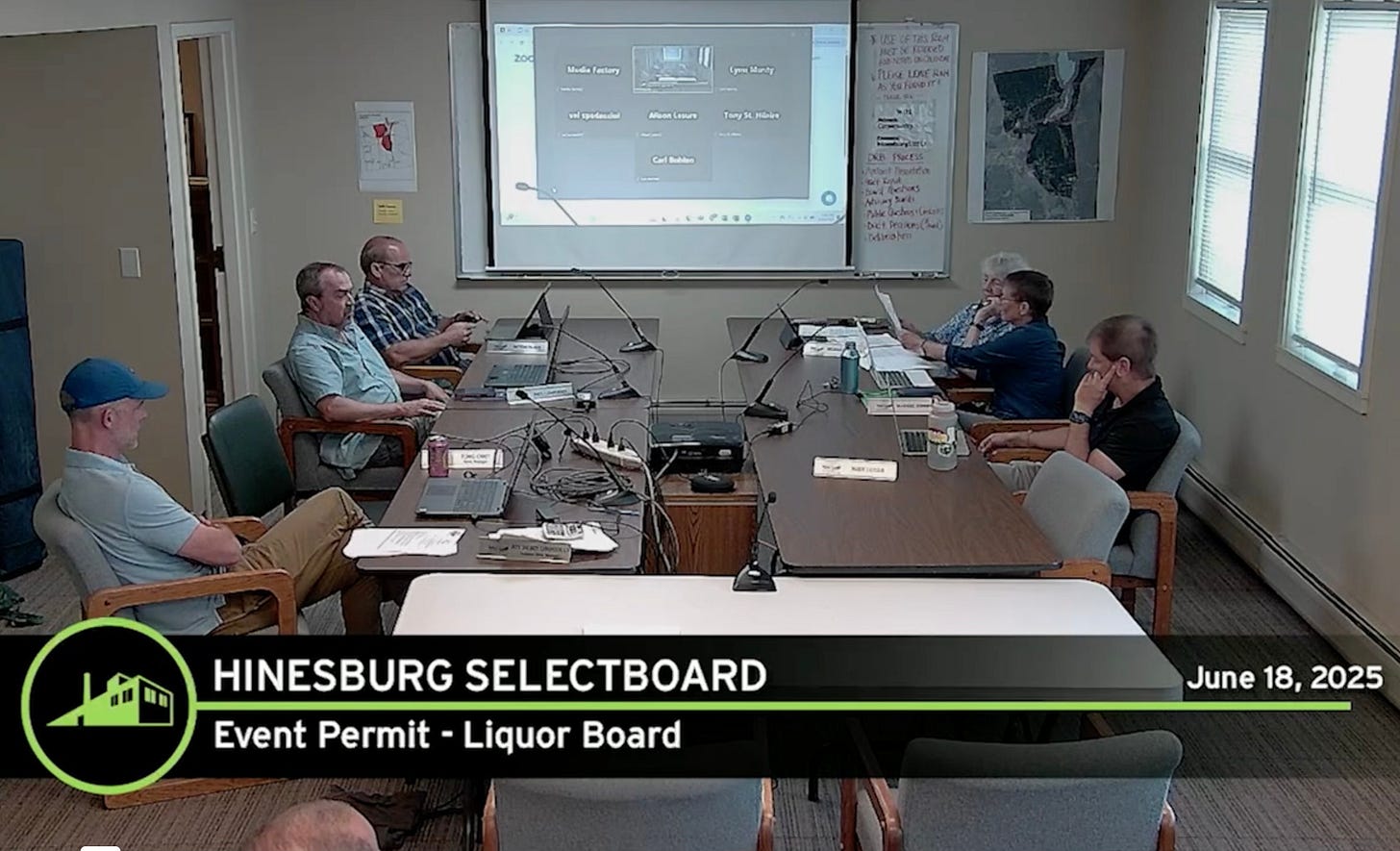Selectboard Stirrings: June 18
Residents question the legality and ethics of changing the purpose of fire impact fees.
Ruchel and Tony St. Hilaire pushed the selectboard for answers regarding the return of fire impact fees in the June 18 selectboard meeting. The ordinance under which they paid their impact fees stated a new fire station expansion or ladder truck would be purchased with the funds. These projects have not been in the works and the six-year term to get them going will be up in under a year. The ordinance said if this were the case, funds would need to be reimbursed.
Town Manager Todd Odit said 98 percent of the almost $200,000 collected was done so under this ordinance, but it since has been replaced. A new ordinance went into effect in March and does not consider a station expansion, or new station. The money under the old ordinance is being held in the event the Town would like to revisit these options.
Fire impact fees are paid as part of the permitting process for new development. They are earmarked for specific projects related to fire protection. This could include funding for new fire stations, equipment, vehicles, and the like. It’s a way to have funds readily available without raising taxes, because more homes built equates to a bigger burden on the fire department.
The St. Hilaires have reiterated in selectboard meetings and in emails to Odit that they are not seeking to just simply be refunded, they are asking for accountability on the Town’s part to follow their own ordinance.
“The Town cannot choose to ignore the stated ordinance and keep the fees that were collected for projects that have been canceled,” Ruchel St. Hilaire said in an email. “Understand this is not a reflection of lack of support for the fire department, rather, it is an alert that the Town needs to be fiscally responsible.”
Odit said nothing has been canceled and that the funds are there to maintain operations. Under the new ordinance, these funds could pay for the newly approved compressor because it is needed to maintain operations. Fees collected under the previous ordinance could be used for similar projects, Odit said. “The Town was exploring a new fire station and that was put on pause,” he said. “We could still purchase a ladder truck and that would be qualifying.”
The issue at hand is whether it is legal or ethical to move the money collected under the old ordinance into a fund operating under the new ordinance. Odit has said the town attorney is being consulted.
“We will get a lawyer involved if we have to,” Tony St. Hilaire said. “When you see the policy, it is clear about what the money could be spent on.”
If the selectboard decides the projects under the old ordinance are cancelled, then everyone will have to be refunded, selectboard chair Merrily Lovell clarified. “It was never the intent of the selectboard to abandon the idea of expanding the fire department,” she said.
Selectboard member Mike Loner asked the St. Hilaires to request the funds after the six-year mark has passed. Tony St. Hilaire has requested a list of everyone who paid a fire impact fee under the old ordinance, and said he will be contacting the Vermont League of Cities and Towns.
“Town government has a history of returning impact fees, so that precedent has been set and the law has been followed,” selectboard member Paul Lamberson said.
In other selectboard news:
A lease-purchase agreement proposal for the water transmission line was accepted. It includes a four-year loan with Northfield Savings Bank with an interest rate of 4.7 percent. There is no prepayment penalty and paying quarterly helps to keep the interest rate down on the $213,000 loan.
The proposed Howard Center Community Outreach Contract was considered. It’s a three-year contract in the amount of $12,500, up from the budgeted $5,000. The current contract expires at the end of June. Every town has seen a significant increase. They are losing a substantial grant, Odit said. The Howard Center intervenes when there is a mental health crisis in town so that folks can be treated by a mental health professional and not the police. Selectboard member Paul Lamberson said he would like to see a presentation by the Howard Center and that he “needs a better sales pitch to understand the numbers.”
A capital fund payment was authorized for a highway truck chassis to be paid back with a loan. Payment to Charlebois in the amount of $166,602 was accepted and a five-year loan from Northfield Savings Bank was approved. The selectboard had already approved the purchase of the highway truck and payment for the chassis wasn’t expected to be due until the truck was outfitted with the dump body and plow. It seems the chassis has been delivered but isn’t scheduled to go into the body shop for more than a year and the dealer is requesting payment. This was unexpected, so financing had not been arranged yet, Odit said. The FY26 capital budget contains the first five years of payments totaling $58,000.
The Selecboard approved the water and wastewater budgets. Overall, water department expenses are decreasing by $17,922 or 2.6% to $655,203. For perspective, the total actual expenses for FY24 were $559,125. The approved wastewater budget, meanwhile, is increasing by $71,878 or 9.5% to $828,820.
In his Town Manager’s report, Odit said a full-time officer is leaving the Richmond Police Department. There will be two officers in each department now. A longer-interim police chief is still being sought. A new two-year contract between the two towns will be put into effect July 1, 2025. It’s a mutual agreement that has room for amendments. Either party can cancel the contract with 14 days notice.



